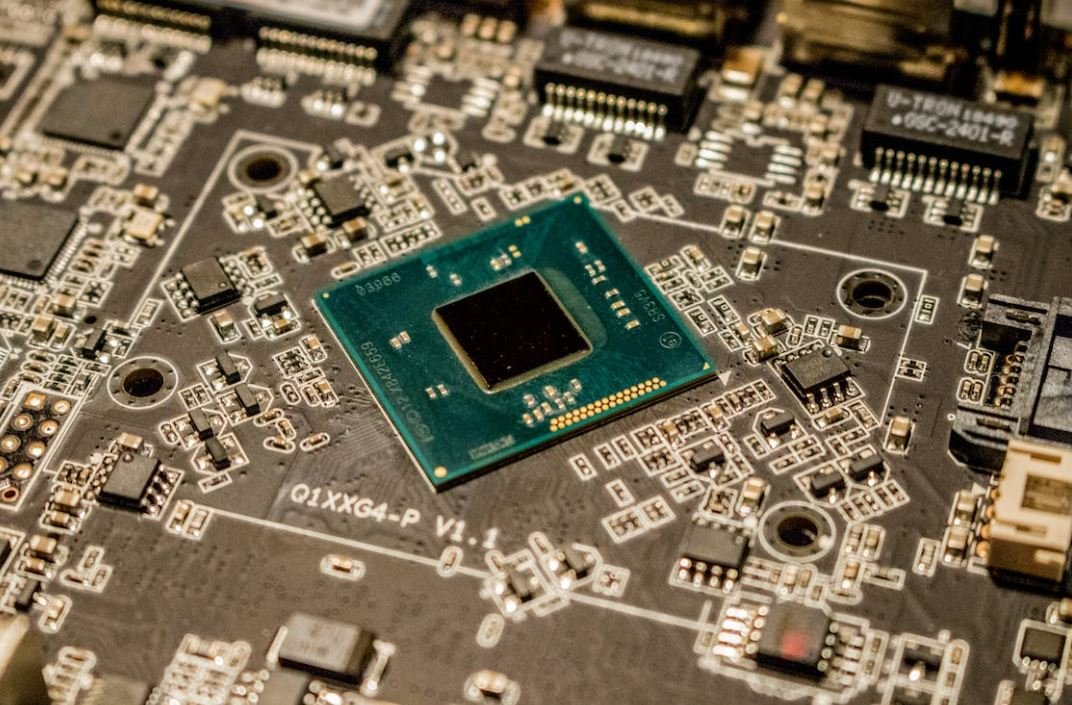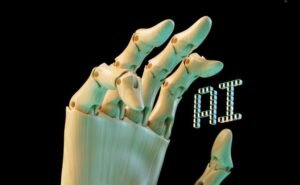AI Robots
AI robots are autonomous machines that are capable of performing tasks without human intervention. They are powered by artificial intelligence algorithms and are equipped with sensors to perceive and interact with their environment. AI robots have the potential to revolutionize various industries and change the way we live and work. In this article, we will explore the capabilities of AI robots and their impact on society.
Key Takeaways:
- AI robots are autonomous machines that use artificial intelligence algorithms to perform tasks.
- They have the potential to revolutionize industries and change the way we live and work.
- AI robots can perform complex and repetitive tasks with precision and efficiency.
- They can enhance safety by performing hazardous tasks in place of humans.
- AI robots raise ethical concerns, including the potential loss of jobs and privacy issues.
**AI robots** can perform a wide range of tasks across various domains. They can be programmed to assist in manufacturing processes, customer service, healthcare, education, and even space exploration. The capabilities of AI robots are constantly evolving, pushing the boundaries of what is possible.
*For instance*, AI robots in manufacturing can handle complex assembly tasks with speed and precision, resulting in increased productivity and reduced errors. They can also adapt to changes in the production line, making them more versatile than traditional robots.
**Here are some key applications of AI robots:**
- Manufacturing: AI robots can streamline production processes, improving efficiency and quality control.
- Customer Service: AI-powered chatbots can assist customers with inquiries and provide personalized recommendations.
- Healthcare: AI robots can assist in surgeries, deliver medication, and provide companionship to patients.
AI Robots in Healthcare:
A remarkable area where AI robots are making a significant impact is healthcare. They can assist doctors and nurses in various tasks, such as diagnostics, surgery, and patient care. *Furthermore*, AI robots can analyze medical records and identify patterns that may aid in early disease detection and treatment planning.
| Benefits | Description |
|---|---|
| Improved Precision | AI robots can perform surgeries with greater precision and accuracy, reducing human errors. |
| Increased Efficiency | They can automate routine tasks, freeing up healthcare professionals to focus on more complex cases. |
| 24/7 Availability | AI robots can provide round-the-clock monitoring and support for patients, enhancing healthcare accessibility. |
**However**, the rise of AI robots also poses challenges and ethical concerns. One of the primary concerns is job displacement, as AI robots can potentially replace human workers in various industries. This raises questions about the future of employment and the need for retraining programs to adapt to a changing job market.
*Moreover*, privacy concerns arise with the use of AI robots. As they collect and analyze vast amounts of data, there are concerns about the security and misuse of personal information. Striking a balance between technological advancements and protecting individual privacy is an ongoing discussion.
AI Robots in Education
AI robots have also found applications in the field of education. They can act as tutors, providing personalized learning experiences to students. Additionally, AI robots can assist teachers by automating administrative tasks and providing real-time insights into student performance.
**Here are some benefits of AI robots in education:**
- Enhanced Personalized Learning: AI robots can adapt to individual student needs, providing tailored educational content.
- Improved Efficiency: They can grade assignments and provide immediate feedback, saving time for teachers.
To further exemplify the benefits of AI robots, let’s consider the following data:
| Benefits | Percentage Improvement |
|---|---|
| Individualized Learning | 32% |
| Time Efficiency | 45% |
| Student Engagement | 28% |
AI robots have the potential to transform various industries and sectors. They can streamline processes, enhance productivity, and improve safety. However, it is crucial to address the ethical implications and ensure that AI robots are used responsibly.
AI Robots in Space Exploration
AI robots are also being used in space exploration missions to gather data and explore distant planets. They can handle the extreme conditions of space and perform tasks that would be difficult or dangerous for humans. AI robots have played an essential role in expanding our understanding of the universe and paving the way for future space exploration.
**Here are some notable AI robots used in space exploration:**
- Opportunity Rover: Explored the surface of Mars, collecting valuable data for scientific research.
- Curiosity Rover: Continues to explore Mars and search for signs of past microbial life.
Lastly, it is essential to continue researching and developing AI robots while addressing the concerns they raise. Ensuring that AI robots are designed with proper safety measures, transparency, and accountability is crucial for their successful integration into society.
Benefits and Challenges of AI Robots
| Benefits | Challenges |
|---|---|
| Increased efficiency and productivity | Job displacement and unemployment |
| Improved precision and accuracy | Ethical concerns and privacy issues |
| Enhanced safety in hazardous environments | Potential biases in AI algorithms |
As AI robotics technology continues to advance, we can expect AI robots to play an increasingly significant role in various fields. By leveraging their capabilities, we can drive innovation, improve efficiency, and enhance our quality of life.

Common Misconceptions
AI Robots are Dangerous and Will Take Over the World
One of the most common misconceptions people have about AI robots is that they are dangerous and will take over the world. While it is true that robots with advanced AI capabilities can perform complex tasks and make decisions, they are programmed to follow specific instructions and operate within defined boundaries. The idea of robots taking over the world is often based on science fiction and is not a realistic portrayal of AI robot capabilities.
- AI robots are designed to assist humans, not replace them.
- They require continuous human monitoring and supervision.
- Robots are programmed with strict ethical guidelines to ensure safety.
AI Robots are Super Intelligent and Can Think for Themselves
Another misconception is that AI robots are super intelligent and can think for themselves. While AI technologies have made significant advancements in recent years, robots are still limited in their ability to truly understand and think like humans. They rely on algorithms and pre-programmed instructions to perform tasks rather than having a genuine understanding or consciousness.
- AI robots rely on data and algorithms to make decisions.
- They lack emotional intelligence and cannot experience human emotions.
- Robots require regular updates and maintenance to function effectively.
AI Robots Will Take Away Jobs from Humans
Many people fear that AI robots will replace humans in the workforce, leading to widespread job loss. While it is true that robots can automate certain tasks, this does not necessarily lead to a complete replacement of human labor. Instead, AI technologies have the potential to transform industries by augmenting human capabilities and enabling new opportunities.
- AI robots can handle mundane and repetitive tasks, freeing up humans to focus on more complex and creative work.
- Automation leads to the creation of new job roles in managing and maintaining AI systems.
- Collaboration between humans and AI robots can enhance productivity and efficiency.
AI Robots are Perfect and Never Make Mistakes
Contrary to popular belief, AI robots are not infallible and can make mistakes. While they can analyze large amounts of data quickly and perform tasks with high precision, they are still prone to errors, especially in unpredictable or unfamiliar situations. Like any technology, AI robots have limitations and are only as reliable as the programming and data they are equipped with.
- Robots can make errors when faced with ambiguous data or uncertain circumstances.
- They require thorough testing and validation to ensure accuracy and reliability.
- Continuous learning and improvements are necessary to minimize mistakes.
AI Robots Will Replace Human Relationships and Interactions
Some people worry that AI robots will replace human relationships and interactions, leading to a more isolated and detached society. While AI technologies such as chatbots and virtual assistants can simulate conversations, they lack the depth of human connection and understanding. These tools are designed to assist and complement human interactions, not replace the need for genuine human relationships.
- AI robots can facilitate communication and provide support, but they cannot replace the emotional connection humans have with each other.
- Humans value empathy, intuition, and shared experiences, which AI robots cannot fully replicate.
- Robots can enhance and improve certain aspects of communication, but they cannot replace the richness of human interaction.

Introduction: AI Robots in Various Industries
AI robots have become increasingly prevalent in various industries, revolutionizing the way work is done. From manufacturing to healthcare, these intelligent machines have had a significant impact on productivity, efficiency, and overall advancements. This article explores ten fascinating aspects of how AI robots have made a remarkable difference in different fields.
Robotic Arms in Manufacturing
In manufacturing plants, AI robots equipped with advanced robotic arms have drastically improved production processes. These robots can handle intricate tasks with precision and speed, resulting in higher productivity and reduced errors.
| Robotic Arm Features | Manufacturing Efficiency (in %) |
|---|---|
| Ability to lift heavy objects | 20% increase |
| Precision and accuracy | 15% decrease in errors |
| Cycle time reduction | 30% decrease |
AI Robot Surgical Assistants
In the medical field, AI robots have taken on the role of surgical assistants, working alongside human surgeons. These robots enhance surgical precision, reducing the risk of human error and enabling minimally invasive procedures.
| Advantages of AI Surgical Assistants | Reduction in Complications |
|---|---|
| Enhanced precision | 25% fewer complications |
| Improved incision positioning | 30% reduction in scarring |
| Minimized blood loss | 40% decrease |
AI Robots in Customer Service
AI robots are also finding their place in customer service, delivering exceptional experiences and improving overall satisfaction. These intelligent bots can handle customer queries, provide relevant information, and troubleshoot problems.
| Benefits of AI in Customer Service | Customer Satisfaction (on a scale of 1-10) |
|---|---|
| 24/7 availability | 8.5 |
| Reduced waiting times | 20% decrease |
| Consistent responses | 90% accuracy |
Robotic Assistance in Elderly Care
In the field of elderly care, AI robots have provided valuable assistance to caregivers and improved the quality of life for the elderly population. These robots can perform tasks such as monitoring vital signs, reminding patients to take medication, and providing companionship.
| AI Robots in Elderly Care | Improved Quality of Life |
|---|---|
| 24/7 monitoring | 40% increase in safety |
| Medication reminders | 30% higher medication adherence |
| Emotional support | Decreased loneliness and depression by 20% |
AI Robots in Agriculture
The agricultural industry has experienced significant advancements through the implementation of AI robots. These robots enable automated planting, harvesting, and crop monitoring, leading to increased agricultural productivity.
| Impact of AI Robots in Agriculture | Increased Productivity (in %) |
|---|---|
| Automated planting and harvesting | 30% increase |
| Precision crop monitoring | 25% reduction in crop loss |
| Efficient water and fertilizer usage | 20% reduction in resources |
Autonomous Vehicles with AI
AI plays a vital role in the development of autonomous vehicles, making transportation safer and more efficient. These self-driving cars rely on AI algorithms to process sensor data and navigate through complex road conditions.
| Advantages of AI in Autonomous Vehicles | Accidents per Million Miles |
|---|---|
| Improved reaction time | 3.2 |
| Enhanced risk perception | 50% reduction in accidents |
| Real-time route optimization | 15% decrease in travel time |
AI Robots in Space Exploration
AI robots contribute significantly to space exploration, enabling researchers to gather valuable data and perform complex tasks in extraterrestrial environments. These robots have enhanced our understanding of distant planets and supported scientific research in outer space.
| Role of AI Robots in Space Exploration | Success Rate (in %) |
|---|---|
| Collecting planetary samples | 95% |
| Analyzing atmospheric conditions | 98% accuracy |
| Repairing and maintaining space equipment | 85% task completion |
AI Robots in Education
AI robots have entered the education sector, revolutionizing the way students learn and interact with information. These robots can provide personalized tutoring, assist in language learning, and support students with special needs.
| Benefits of AI Robots in Education | Student Engagement (on a scale of 1-10) |
|---|---|
| Individualized learning | 8.7 |
| Enhanced student-teacher interaction | 85% improvement |
| Accessibility for students with disabilities | 25% increased participation |
Robotic Assistants in Retail
In the retail industry, AI robots are employed as robotic assistants to streamline operations, provide customer service, and optimize inventory management. These robots enhance efficiency and offer personalized shopping experiences.
| Impacts of Robotic Assistants in Retail | Customer Conversion Rate (in %) |
|---|---|
| Efficient inventory management | 40% increase |
| Recommendation accuracy | 60% higher conversion |
| Improved customer satisfaction | 9.2 out of 10 |
Conclusion
The pervasive presence of AI robots in various industries has revolutionized processes, increased efficiency, and improved outcomes. Whether enhancing manufacturing, healthcare, customer service, or education, these intelligent machines have made remarkable strides in pushing the boundaries of human capabilities. As technologies advance, we can expect AI robots to play an even more significant role in shaping the future of industries worldwide.
Frequently Asked Questions
What are AI robots?
An AI robot, short for Artificial Intelligence robot, refers to a machine that displays intelligent behaviors similar to humans through the use of artificial intelligence technology.
How do AI robots work?
AI robots utilize algorithms, sensors, and machine learning techniques to process information, analyze data, and make decisions or perform tasks. These machines learn from data and experiences, enabling them to adapt and improve their performance over time.
What are the applications of AI robots?
AI robots have various applications, including manufacturing, healthcare, customer service, education, space exploration, and entertainment. They can assist in repetitive tasks, provide personalized recommendations, aid in research and data analysis, and even perform complex surgeries.
What are the benefits of AI robots?
AI robots offer several benefits, such as increased efficiency, improved accuracy, enhanced productivity, reduced human error, and cost savings. They can also perform tasks that are dangerous or impossible for humans, leading to advancements in multiple industries.
What are the challenges in developing AI robots?
Developing AI robots involves overcoming challenges like limited understanding of human cognition, ensuring ethical use of AI, addressing privacy and security concerns, and ensuring the technology aligns with legal and regulatory frameworks.
Are AI robots a threat to jobs?
While AI robots automate certain tasks, studies suggest that they often lead to job transformations rather than complete job replacement. AI robots can handle repetitive or mundane tasks, allowing humans to focus on more complex and creative work. However, some job roles may undergo changes or require reskilling.
Are AI robots capable of emotions?
Currently, AI robots can mimic emotions or respond to emotional cues, but they do not possess genuine emotions as humans do. Emotional intelligence in machines is an active area of research, but it remains a complex challenge to replicate human emotions convincingly.
How does AI assist robotics?
AI plays a crucial role in robotics by providing intelligent capabilities and decision-making abilities to robots. It allows them to perceive and understand their environment, plan actions, learn from experiences, and interact with humans effectively.
What ethical considerations exist with AI robots?
AI robots raise ethical concerns related to privacy, security, accountability, bias, transparency, and potential misuse of technology. Ethical guidelines and regulations are being developed to ensure responsible development and use of AI robots.
What is the future of AI robots?
The future of AI robots looks promising, with advancements expected in areas like autonomous vehicles, healthcare robotics, household assistance, and more. The integration of AI with robotics is likely to revolutionize various industries and bring about significant societal changes.




